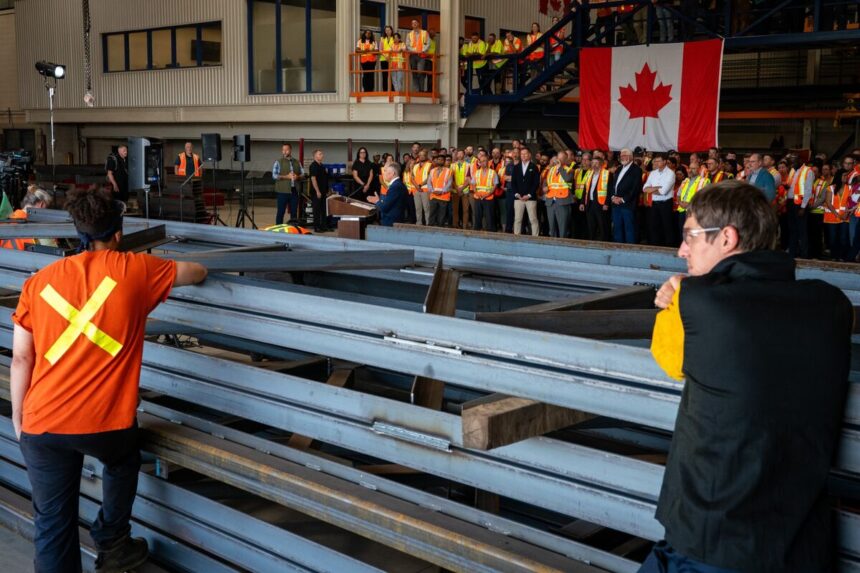In a high-stakes diplomatic maneuver, Canadian trade representatives met with their American counterparts in Washington yesterday, marking the third round of negotiations aimed at securing tariff exemptions amid President Trump’s aggressive trade policies. The talks come as Canada faces mounting economic pressure from the 25% steel and 10% aluminum tariffs that have strained cross-border commerce since their reinstatement in March.
“We’re cautiously optimistic that rational economic arguments will eventually prevail,” said Trade Minister Anita Fielding, who led the Canadian delegation. “The data clearly demonstrates that these tariffs hurt businesses on both sides of the border, and we’ve presented compelling evidence that Canadian imports pose no national security threat to the United States.”
The negotiations, which began in April, have taken on renewed urgency as economic indicators show Canadian manufacturing exports to the US declined 8.7% in the second quarter. According to CO24 Business analysis, over 27,000 jobs in Canada’s metal industry remain at risk if the tariffs continue through year-end.
Sources close to the talks indicate that Canada has proposed a comprehensive monitoring system for Chinese steel and aluminum transshipments – addressing a key concern of the Trump administration, which has accused Canada of serving as a backdoor for Chinese metals into the US market.
“We’ve developed a robust verification protocol that would give American officials unprecedented visibility into our supply chains,” explained Deputy Trade Minister James Morrison. “It’s a significant concession that demonstrates our commitment to addressing their legitimate concerns while preserving our integrated economic relationship.”
The American delegation, led by US Trade Representative William Pearson, has reportedly shown interest in Canada’s proposal but continues to press for quotas that would cap Canadian metals exports at 2023 levels – a demand Ottawa has consistently rejected as economically damaging and contrary to the spirit of the USMCA agreement.
Industry stakeholders across Canada have mobilized unprecedented support for the government’s negotiating position. The Canadian Manufacturing Coalition, representing over 30 industry associations, released an economic impact study last week showing that continued tariffs would reduce bilateral trade by $17.8 billion annually and eliminate approximately 43,000 jobs across both countries.
“This isn’t just about steel and aluminum,” said Marta Rodriguez, CEO of the Canadian Steel Producers Association. “The integrated supply chains that have developed over decades mean these tariffs ripple through everything from automotive manufacturing to construction and energy infrastructure.”
The negotiations occur against a backdrop of deteriorating global trade relations, with the World Trade Organization reporting a 23% increase in protectionist measures among G20 countries in the past year. Economic analysts warn that escalating trade disputes could undermine post-pandemic economic recovery efforts.
Former US Commerce Secretary Jennifer Walsh, speaking at an economic forum in Toronto last week, noted that “rational economic self-interest sometimes takes a back seat to political considerations in trade policy. The challenge for Canadian negotiators is finding concessions that allow the US administration to claim a win while preserving the essential elements of the trading relationship.”
Canadian diplomats have reportedly secured support from several key American business constituencies, including the US Chamber of Commerce and major automotive manufacturers, who have publicly stated that the tariffs disrupt their supply chains and increase consumer prices.
Parliament’s Standing Committee on International Trade is scheduled to meet next week to assess potential retaliatory measures should negotiations fail, though government sources emphasize that finding a negotiated solution remains the priority.
As businesses on both sides of the border await the outcome, one question looms large: Can economic rationality triumph over political expediency in an era of increasing trade nationalism, or are we witnessing the permanent fragmentation of North America’s once-integrated economic space?










